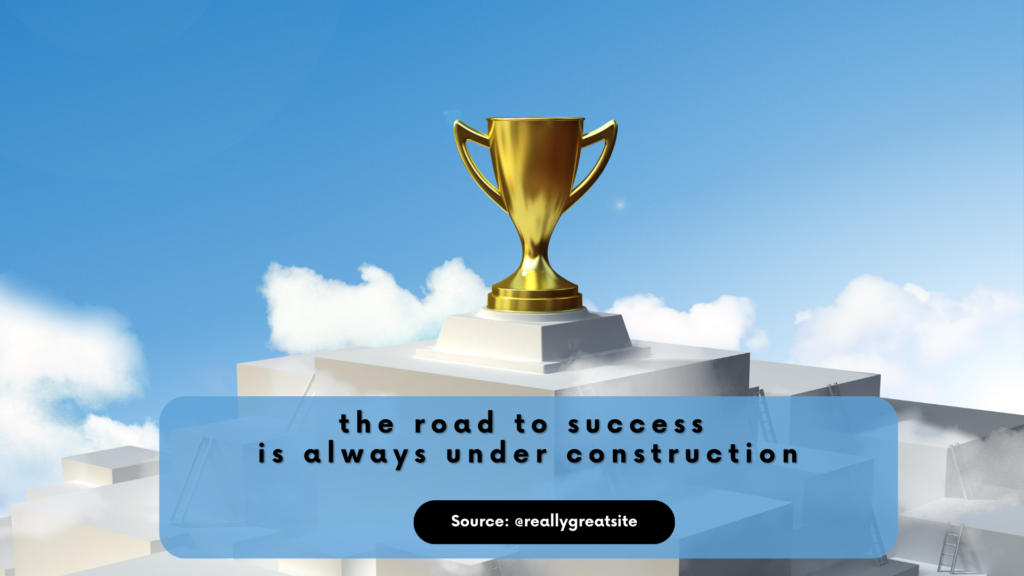From earlier centuries till now, how our human fellows objectively define success revolves around material, financial, intellectual, vocational, familial, communal, and/or national sense of success. By such claim, I mean people can think they are successful when they are able to acquire a large concentration of physical assets (such as houses and cars), have a lot of money (for present and future uses), obtain highest educational degrees (say a Ph.D. or an advanced professional qualification), have a high-paying and high-status job, have a great family (and a good connection with relatives or kinsmen), become an acknowledged social influencer or public pundit (who is well respected by a great number of people in their local communities or on the international stage), and/or live in a highly developed or superpower nation (in terms of politics, military, economy, and culture). All of these objects or objectified states make people proud and feel like a champion. Pride and championship consequently make them pleased and satisfied, egoistically. These labels attached to the idea of success have remained the goals and golden standards many people want to achieve in life, irrespective of their races or nationalities.
However, there are people who have achieved and acquired all these labels of success but reach a stage of life where they could not experience happiness and meaningfulness. A lot of rich and successful people are reportedly unhappy or unable to define the meaning of their life. Such encounters sometimes lead to emotional imbalance and vulnerability, which further causes inappropriate (or even self-destructive or social-destructive) behaviors.
This kind of crisis in the successful people is further worsen by social and global instability of the 21st century. Multiple and concurrent crises — ranging from environmental threats, to pandemics, to economic uncertainties, to wars and disorders, to technological side-effects — cause suffering and vulnerabilities for the whole human race globally. The rich, the powerful, the educated, and everyone are and will be affected in some ways. And it is such collective crises-laden situations that push some thinkers to revisit the existing idea of success and the objects and labels used to define it.

The deeply-rooted idea of ego-driven and material success is hard to abandon in one night, but its place in the mental space of human beings has been shaky to some extent in this 21st century. There seems to emerge a new idea of success. This new idea is that of emotional independence as a foundational attribute of success.
Emotional independence is an individual’s state of mind that remains neutral and unaffected by internal or external happenings within or around him/herself and/or by the outcomes of such happenings — whether such are favorable events to cherish or depressing phenomena to avoid. Using the term “neutral” and “unaffected” can be a bit too extreme from a scientific point of view because it is hard to measure and set a clear threshold for neutrality and unaffectedness. From a practical point of view, what I mean by neutral and unaffected emotional state is that which is not too clouded and confused (due to internal or external influences) to the point that one’s intellectual and decision-making ability becomes dysfunctional and out of control.
When one achieves emotional independence, s/he sets her/his feet on the path to success. They achieve success in the sense that they are more thoughtful and understanding and so are ready and more capable of making better decisions at times of adversities. Emotionally independent people are likely to become less greedy, deceitful, exploitative, violent, and destructive. The world may be more peaceful and sustainable if an adequate mass of modern human beings acknowledges and lives by the rules and principles of emotional independence. In this sense, emotional independence can be seen as an outcome of what some socialists and educationalists consider as “socio-emotional skills”.
That is perhaps the reason why socio-emotional skills become increasingly relevant for policies, practices, and research on 21st century education and vocation. I should remind readers of this blog post that education systems around the world have paid critical attention and made considerable investments in building socio-emotional skills in their students because they understand that such transferrable skills have become (and will become more and more) important in our uncertain future.
In fact, the idea of emotional independence does not invalidate the current material way of thinking about success. Obviously not! It is just a new attribute which is foundational in achieving success during the time of crises. The idea has increasingly been acknowledged by more morally civilized people as a “better” way of thinking about success.
In our complex, uncertain world attacked by poly-crises, one is successful to a very large extent if one is emotionally strong enough to never allow external matters and events cloud and destroy their neutral emotional state. Emotional independence is a new sense and taste of success, but it is hard for people who are dominated by the material idea of success to come in touch with such an idea. It is also not comprehensible to non-lifelong learners who do not continuously reflect on and seek to understand the existence and meaning of their life and their actions. So, if you traverse the remaining decades of the 21st century with emotional prowess and with limited experiences of mental breakdown or emotional vulnerability (which go wild and uncontrollable), you are good to consider yourself a man or woman of success. You achieve emotional independence.

On a final note, emotional independence is a path that one chooses. It is perhaps not the same as emotional intelligence or emotional quotient, theorized by educational psychologists (well, this topic should be further discussed in another blog post). But what is clear is that emotional independence is neither static nor permanent. It is perhaps not naturally inherited. It can be developed. It changes and grows. It is both being and becoming. We, rational human beings, have the power to regulate it.

Siteground: Siteground is known for its exceptional speed and advanced security features. They provide excellent customer support, automatic backups, and a user-friendly interface.
HostGator: HostGator is known for its affordable plans and reliable performance. They offer unlimited storage and bandwidth, a variety of hosting options, and excellent customer support. [url=http://webward.pw/]http://webward.pw/[/url].